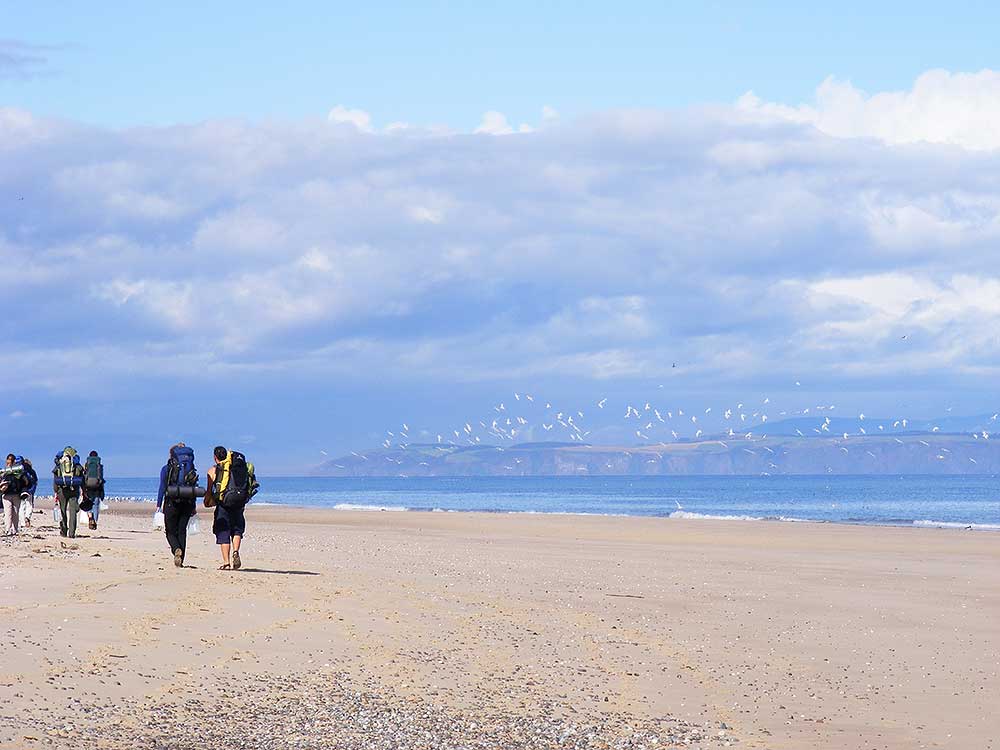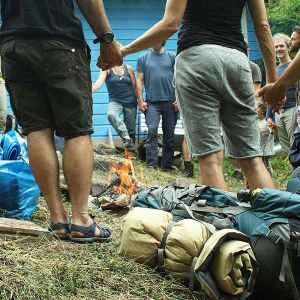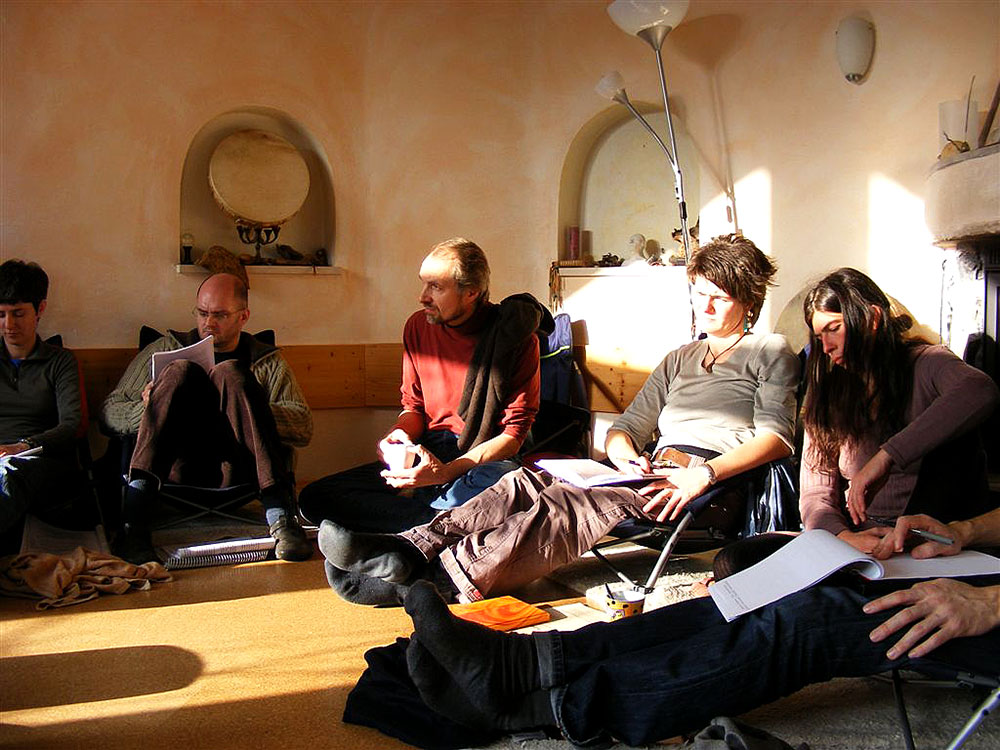Youropean Quest
International Training for Change Process and Vision Quest Guide
A modular training program at Venues in
Germany/Eschwege Institut, Austria/Innsbruck and Findhorn/Scotland
Next start: Sept. 26, 2017
What for?
In the course of their development processes, individuals, teams, companies and organizations, typically go through, transitions - sometimes these can be dramatic.
Change Process guides help to effectively and successfully guide through and design such transition processes. Their tools and models help to promote positive and proactive personal responsibility for the transition before it might develop into an individually and economically damaging long term crisis.
What is it that Change Process Guides do?
Transition processes like burn out, puberty, disengagement, midlife crisis as well as change processes in organizations, are developmental crises that take place at the fruitful threshold between the old no longer functioning state and the new state that is not yet ready to function.
Change Process Guides help by using innovative methods, rooted in eco- and perceptional- psychology, to gain awareness and to deepen the understanding of the issues involved in the transition.
Change Process Guides design and guide through individually tailored supporting programs, by tracing the natural arc of change processes. In a next step, these tools are used to successfully integrate the gained new insights.
Modern forms of rites of passage, such as Vision Quest, can help to confirm, what has been achieved and thereby to clearly mark the step into a new era.
The approach of Change Process Guides is cross-cultural and accessible, independent from social, religious or cultural backgrounds. This work stands in the lineage and tradition of the School of Lost Borders in California.
What are nature-based tools and why use them?
Nature-based tools, like nature itself, are focused on balance, and on the resources and interconnections with the living world, rather than on pathologies of beings disconnected from their surrounding environment.
The natural pattern of change processes is a cyclic movement through major qualities that can be determined like the seasons of a year. From there it is possible, to design processes that are tracing the arc of that movement.
Following the credo that the best answers are always already contained within the person, or the group that asks for them, these tools can help the treasures already in the person or situation to emerge.
A range of methods will be taught including:
The Four Shields of Human Nature
A psychological model of human health and growth, based on the cyclic process patterns in the natural world
Contemplative threshold work
Working with outer nature as a mirror, to find a deeper self-understanding of the unique inner nature of each of us.
Way of Council
The ancient, community building practice of sitting in a circle, speaking and listening from the heart, enriches any relationship – at home, in school, in the workplace, in community. Council is a gateway to deeper communication, intercultural understanding and the non-violent exploration of conflict.
Other methods are: Solo time in Nature, Shadow work, Creating inviting and safe space, Transition process design (For more details, see below).
Certification and Course Structure
The course is certified by the Eschwege Institut in Germany. In Germany, the Eschwege Institut and its training academy Campus Peregrini, are officially acknowledged and accredited Institutes for continuing education, having earned the official seal assuring professional quality standards.
This 7 – module program equals the standards of the IP and IPV Training at the Eschwege Institut making it one of the most comprehensive training formats in Europe. It offers a two-tier-structure that allows qualifying and completing on two different levels that build on each other:
Change Process Guide (CPG):
Completion of modules 1-7, including the qualification to guide groups and individuals through max. 12 hour nature solos.
You can finish the training here, to be certified as Change Process Guide (CPG), or you decide to build upon this foundation and further qualify to become a:
Vision Quest Guide (CPGV):
Completion of Vision Quest Guide training





